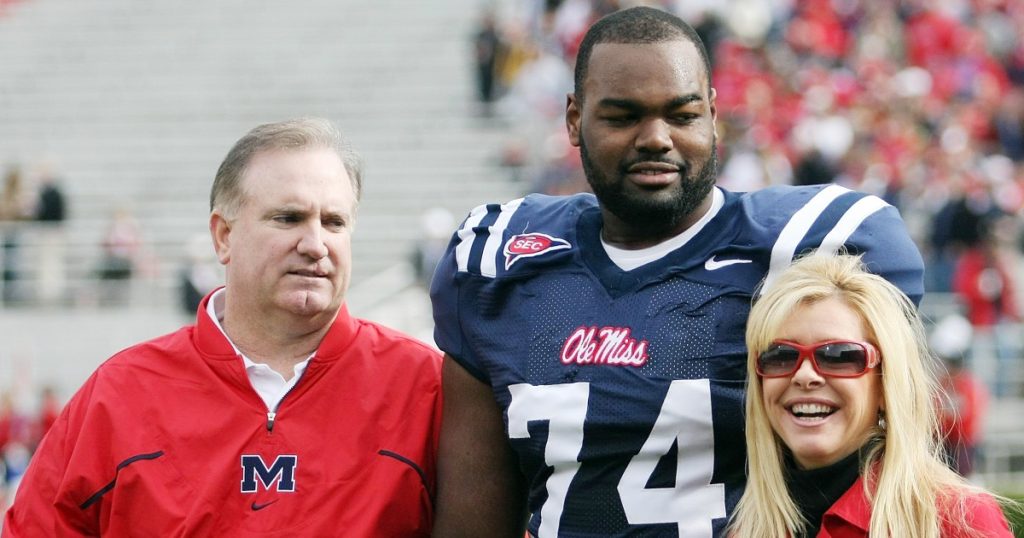Former NFL star Michael Oher recently spoke out in an interview with the New York Times magazine about his lawsuit against Leigh Anne and Sean Tuohy. Oher accused the couple of deceiving him into a conservatorship and unfairly profiting from the book and movie “The Blind Side,” which focused on their relationship with him. He expressed his heartbreak over feeling defined by the movie and criticized the film for its inaccurate portrayal of him as unintelligent and clueless, especially regarding football.
Oher’s lawsuit alleged that the Tuohys lied about adopting him, instead placing him into a conservatorship that gave them control over his finances and major life decisions. A Tennessee judge quickly ended the conservatorship, but the rest of the lawsuit has continued. The Tuohys deny Oher’s accusations and claim that he received over $138,000 in proceeds from the book and movie. Oher highlighted discrepancies between his own perspective and the Tuohys’ version of events, including the timeline of when he was named the top college football recruit in the country.
Despite his grievances, Oher acknowledged having fond memories of his time with the Tuohys and the impact they had in his life. He recounted how they were the first to tell him they loved him, which made him feel vulnerable and led him to let his guard down. Oher admitted that he went along with the family’s narrative for years because his focus was on his NFL career, during which he played for the Baltimore Ravens, Tennessee Titans, and Carolina Panthers before retiring in 2017.
Oher described feeling anger and a desire to return to his pre-“The Blind Side” self, personality-wise. He expressed concerns about how public perceptions of him based on the movie might affect his children. Oher also shared his fear that his children’s teachers might think they are not capable academically because of false assumptions about him. The movie and book have brought about lasting consequences for Oher, who is now working on overcoming his past and reclaiming his identity.
The impact of the lawsuit and Oher’s revelations have brought attention to issues of representation and power dynamics in narratives like “The Blind Side.” The film received acclaim and awards, including an Oscar for Sandra Bullock’s portrayal of Leigh Anne, but has faced criticism for perpetuating white savior tropes and glossing over Oher’s perspective. Oher’s story sheds light on the complexities and challenges faced by individuals whose lives are portrayed in the media without their input or consent, raising questions about ethics and accountability in storytelling.


